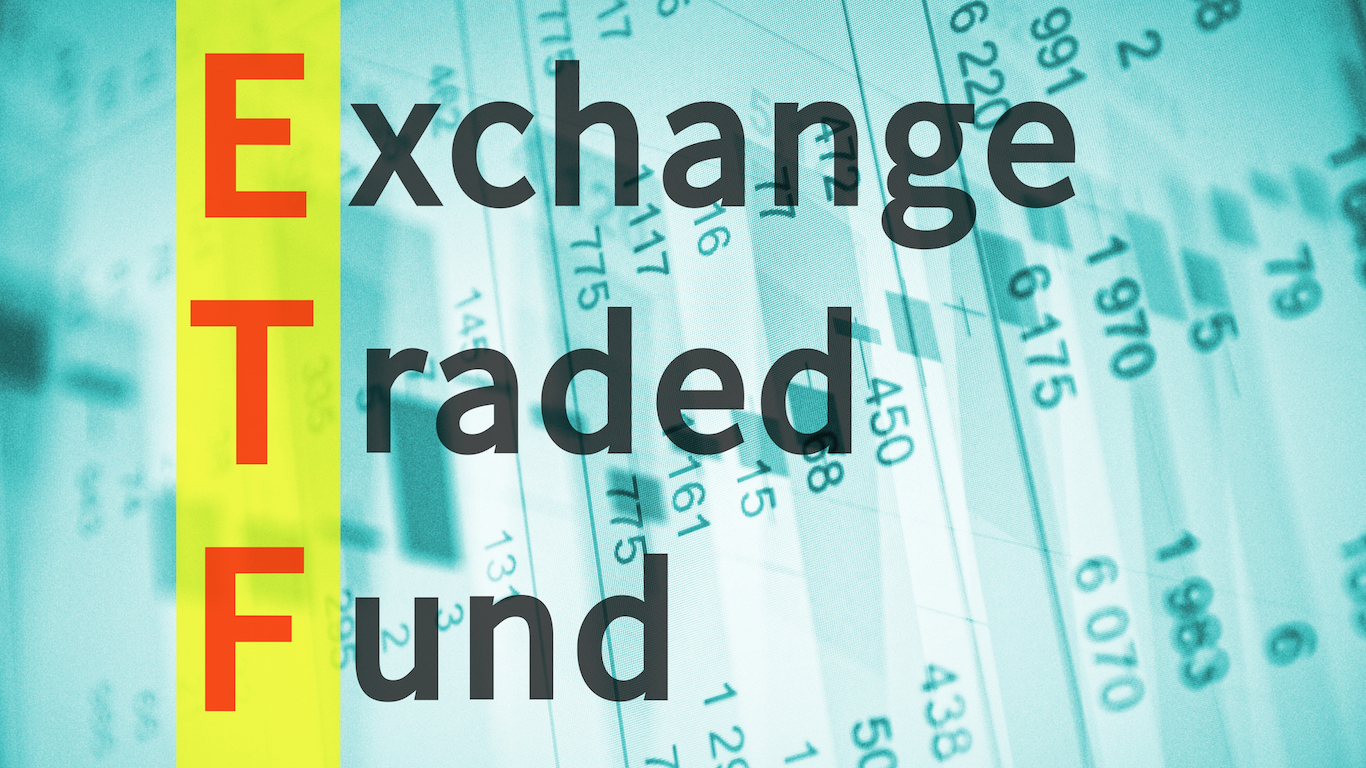Commodities & Metals
Rare Earth Elements ETF Finds Itself in Middle of China Trade War Plays

Published:
Last Updated:

Investors are having to go dust off old trading and investing books from before the 1980s (and perhaps even toward the start of the 20th century) to get solid ideas about how to navigate through a trade war. The media may be making more of the actual impact than the financial markets, but a trade war brings some undeniable risks to an already slowing global growth story. While China has much more to lose than the United States does in an all-out and prolonged trade war, the Asian nation may have an ace up its sleeve: rare earth elements and strategic metals.
The VanEck Vectors Rare Earth/Strategic Metals ETF (NYSEARCA: REMX) had been considered a down-and-out exchange-traded fund for some time before the past few days. After all, after closing at $14.48 on Tuesday, its 52-week range of $13.05 to $25.94 hardly makes the case for a grand performance. To make matters even uglier, its shares were down over 40% over the past 12 months, despite nearly a 10% gain so far in 2019.
This ETF could find itself right in the middle of the trade war if China decided to halt or limit its exports of rare earth metals and minerals. There were reports from China, with the nation making comments about rare earth elements, which sent some of the related companies on foreign exchanges surging. That said, the old rule of “understand exactly what you are investing into” should be a warning in ALL CAPS when it comes to this case.
Some of the Rare Earth/Strategic Metals ETF’s components could be huge winners, but some could be losers. In fact, the ETF rose by almost 3% to $15.24 shortly after Wednesday’s opening bell. ETF investors just need to understand that most of the companies within the weighting of this fund are companies that they may have never heard of and that are not listed in the United States.
U.S. investors used to have several small-cap money-losing companies with rare earth exposure and projects, but the main player (Molycorp) no longer exists as a standalone operation and is now part of a Canadian outfit called Neo Performance Materials, after the 2015 bankruptcy of Molycorp. The other former smaller and more speculative players from that era (Avalon Advanced Materials and Rare Element Resources) both now trade as over-the-counter penny stocks. Make no mistake, despite the absolute need for rare earth materials, a huge bubble formed and burst several years ago.
The VanEck Vectors Rare Earth/Strategic Metals ETF tracks the performance of the MVIS Global Rare Earth/Strategic Metals Index. It comes with a fairly high expense ratio of 0.59%, and its assets under management were about $195 million on last look. The ETFdb.com screener showed that the ETF dates back to 2010 and that only one U.S. company is among its top 10 holdings. The VanEck website also lists only 20 holdings in all, and Tronox is the sole U.S.-based company within the fund. The ETFdb.com ETF page indicated its top 10 weightings as follows:
| Holding | Weighting |
|---|---|
| China Northern Rare Earth Group High-Tech Co Ltd (600111:HK) | 9.20% |
| Iluka Resources Ltd (ILU:AUX) | 7.25% |
| Lynas Corporation Ltd (LYC:ASX) | 7.20% |
| China Molybdenum Co Ltd (603993:SHH) | 6.56% |
| Tronox Holdings PLC (TROX) | 6.06% |
| Xiamen Tungsten Co Ltd (600549:SHH) | 5.90% |
| Assore Ltd (ASR:JNB) | 5.73% |
| Toho Titanium Co Ltd (5727:TYO) | 5.34% |
| Zhejiang Huayou Cobalt Co Ltd (603799:SHH) | 5.03% |
| Pilbara Minerals Ltd (PLS:ASX) | 4.67% |
A research note from Merrill Lynch on May 24 addressed the potentiality of China’s rare earth elements being used in the trade war. The firm noted that China has been able to influence pricing and availability for short periods, but creating long-term shortages was difficult because of how intertwined the global supply chain is. That report even noted how the U.S. potentially could extract rare earth elements from coal deposits and acquire them from other sources.
24/7 Wall St. also outlined other sources that can be tapped for rare earth elements if needed, and that includes a former review of the coal sector being able to lend a hand.
When investors start to say they want exposure to critical elements that foreign companies (and their governments) effectively govern and control, they are taking on more risk, even if these ETFs have diversified names and geographies. Just ask Molycorp, Avalon Advanced Materials and Rare Element Resources mentioned above.
Credit card companies are pulling out all the stops, with the issuers are offering insane travel rewards and perks.
We’re talking huge sign-up bonuses, points on every purchase, and benefits like lounge access, travel credits, and free hotel nights. For travelers, these rewards can add up to thousands of dollars in flights, upgrades, and luxury experiences every year.
It’s like getting paid to travel — and it’s available to qualified borrowers who know where to look.
We’ve rounded up some of the best travel credit cards on the market. Click here to see the list. Don’t miss these offers — they won’t be this good forever.
Thank you for reading! Have some feedback for us?
Contact the 24/7 Wall St. editorial team.